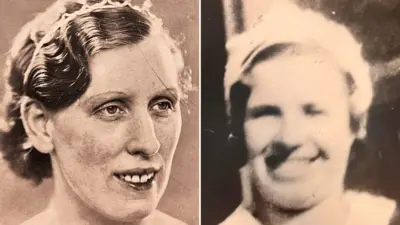We've updated our Privacy and Cookies Policy
We've made some important changes to our Privacy and Cookies Policy and we want you to know what this means for you and your data.
Minority girls less likely to have cervical cancer jab
Girls from black and Asian ethnic minorities are less likely to be vaccinated against cervical cancer, research suggests.
In a survey by University College London of 2,000 teenagers from 13 London schools, unvaccinated girls also said they would be less likely to go for a smear test when adults.
The HPV vaccine is offered to all girls aged 12-13 in schools across the UK.
Girls who are not vaccinated have an increased risk of cervical cancer.
Sara Hiom, Cancer Research UK's director of early diagnosis, said it was important that as many girls as possible were protected.
"It's vital that girls, along with their parents, understand the importance of both these programmes, which are designed to prevent cancer from developing.
"As well as cervical cancer, research has shown that HPV also increases the risk of developing other cancers, such as some types of mouth, head and neck cancers, anal cancer and other genital cancers."
'Knowledge about the disease'
The HPV vaccine was introduced in the UK in 2008, with a national vaccination programme for girls in Year 8 at school. To be fully protected, girls need to receive three doses of the vaccine within six months.
Cervical cancer is largely preventable through vaccination against HPV, the virus that causes it, as well as cervical screening in adulthood, which picks up any problems early.
In the UCL survey, 85% of white girls said they had received the three doses, compared with 78% of Asian, 74% of "other" ethnicity and 69% of black girls.
The findings, being presented at a National Cancer Research Institute conference in Liverpool, also revealed there was no link between the vaccine status of the girls who were surveyed and their level of sexual activity.
Laura Marlowe, a researcher at UCL, said religious beliefs could have a part to play in the lower uptake figures for Asian girls but they could not explain the figures for the black girls.
Dr Jo Waller, lead researcher at UCL, said more research was needed to find out why there was a difference between ethnic groups.
"We need to understand the reasons for ethnic inequalities in uptake, as well as working to ensure that unvaccinated women understand the importance of cervical screening."
Jo's Cervical Cancer Trust has carried out research into awareness of cervical cancer among ethnic minority groups and charity director Robert Music said its results showed "a clear difference in levels of knowledge about the disease and ways to prevent it".
Pre-cancerous changes
He said: "Less than half of black and minority ethnic women knew the human papillomavirus causes cervical cancer."
The findings also showed that a third more black and minority ethnic than white women said they had never attended a cervical screening appointment.
Around five million women are invited for cervical screening in England each year when a smear test looks for pre-cancerous changes in the cells lining the cervix.
The tests are routinely offered to women aged 25 to 64.
In Scotland, the age at which women are first offered a cervical screening test will be raised from 20 to 25 in 2015.
From September, women in Wales are now being invited for smear tests when they reach 25. This is because research concluded that screening women under 25 was not an effective way of preventing cervical cancer.
Top Stories
More to explore
Most read
Content is not available








